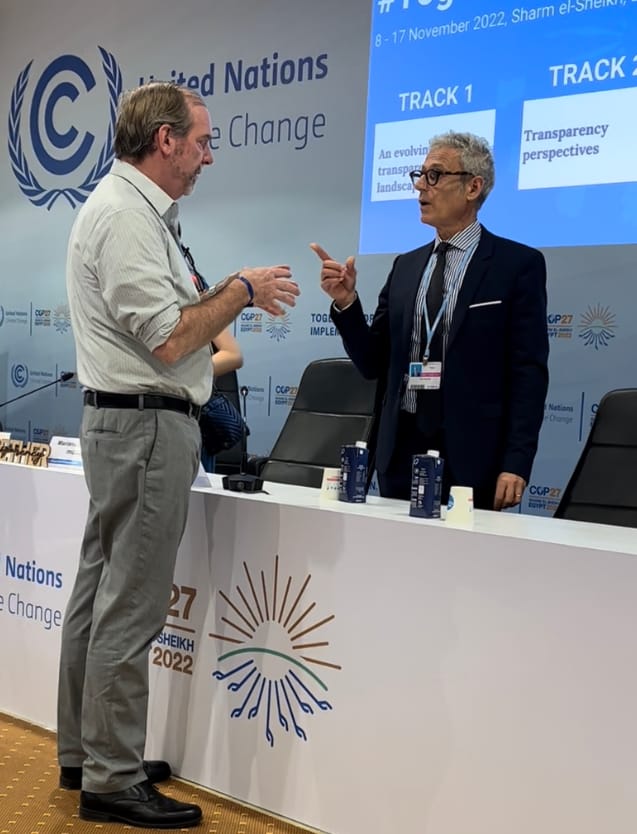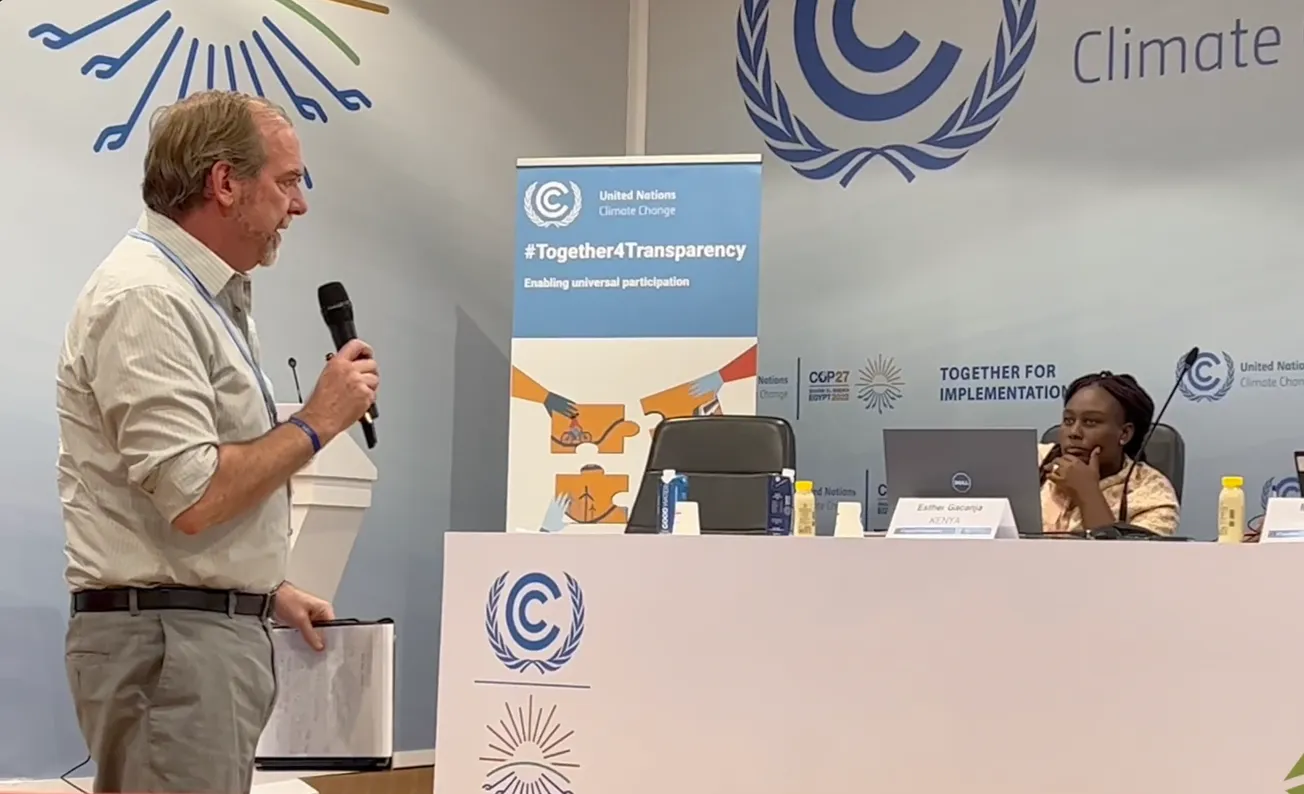Table of Contents
Peter Murphy
cfact.org
Peter Murphy is Senior Fellow at CFACT. He has researched and advocated for a variety of policy issues, including education reform and fiscal policy, both in the non-profit sector and in government in the administration of former New York Governor George Pataki. He previously wrote and edited The Chalkboard weblog for the NY Charter Schools Association and has been published in numerous media outlets, including The Hill, New York Post, Washington Times and the Wall Street Journal.
Among the many takeaways from the United Nations 27th Climate Summit is that climate policies stem from bureaucratic central planning and control of societies which coincides with the diminution of individual freedom. Two salient examples CFACT observed at the summit tell the story: governments that embrace climate change as a crisis are determined to control where you live and how you travel, among other life necessities.
Representatives from several governments spoke of creating “denser cities” and “less transport” as a means of lowering carbon emissions, including by “making it inconvenient” and more cost prohibitive to use a car.
This central planning scheme of forcing more people to live in cities and adopt mass transit was the theme of Nadja Taeger, a consultant to the German Development Corporation, or “GIZ”. When I questioned her about the concern that many people do not want to live in cities and enjoy having their own car, and that such government mandates are at variance with democracy, she retorted that “We are not against democracy… We are about showing people that it benefits them.”

Kathleen Cameron, an older graduate student in urban planning at the University of Michigan, captured the climate mindset as she also spoke up from the audience with full agreement from the panel. She claimed automobiles were “forced through [government] policies” over many years (as though people themselves had no interest in them). She went on that we need to “make it inconvenient for people to have to drive cars all the time. If we make roads narrower so people can’t speed through them, people feel inconvenienced and they’ll want to go to alternative forms of transit. If you make it less fun to drive, you will soon discover that riding a bike is incredibly free and empowering.” Riding a bus is “actually fun” and “everyone should buy a bike.”
The GIZ group also had their fingerprints on other panelists from Kenya, Columbia and Vietnam who were employed in the transportation, environmental and planning ministries of their respective governments. The minister from Kenya, Ester Cacanja, presented her agency’s plan to go from “road to rail” in pursuit of “non-motorized transport”, including “walk and cycle to work.”
The minister from Vietnam, Tran Minh Hue, presented her government’s plan to “increase [the] share of public transport” in cities and effectively forcing it through “communication, education and awareness raising”. She mentioned the need for international financing (such as World Bank and other global financial institutions) and for tightening regulations on fuel standards; this latter bullet point would make gasoline and diesel fuel more expensive.
If these government bureaucrats have their way, automobiles (esp. gasoline-powered) and single-family homes will become financially prohibitive for more families in order to force greater numbers of people to live or remain in more densely populated cities.
In a separate panel, there was a push to mandate “green, climate friendly” buildings. Such mandates would not merely apply to new construction, which alone would increase costs, but retrofit existing buildings, which would cost untold trillions of dollars.
One of the presenters, Yves-Laurent Sapoval, an advisor [to] the French ministry of Ecological Transition, urged an intergovernmental effort to plan for retrofitting buildings in existing cities, including a timeline and estimated cost. That way, if nations in the Northern Hemisphere (ie Europe, East Asia and the US) proceed, they can impose the same green building standards on new construction in the developing world, which is mostly in the Southern Hemisphere.
These COP27 sessions on transportation and buildings are salient examples of the nature of climate policies: they are the product of central planning bureaucracies to control and re-order societies. Absent throughout these discussions and the conference at large is the notion of freedom, particularly individual freedom – that you get to decide how and where you live and travel. It simply does not enter the discussion.
Another completely absent concept at the climate summit is cause-and-effect. All these climate policies costing trillions of dollars that threaten individual freedom of choice are assumed to reduce global carbon emissions that, in turn, will lower the average global temperature. In reality, no one can say with any certitude that planetary temperatures will be affected even if such wholesale changes in housing and transportation could be imposed worldwide.
The message from climate bureaucrats from a cross-section of nations at the COP27 summit boils down to this: people either will be convinced of the necessity of climate policies to re-order societies, or they will be forced by government edict that it’s good for them, regardless of their support.
In sum, fighting global warming means eating your expensive spinach because WE say it’s good for you… so learn to like it!









